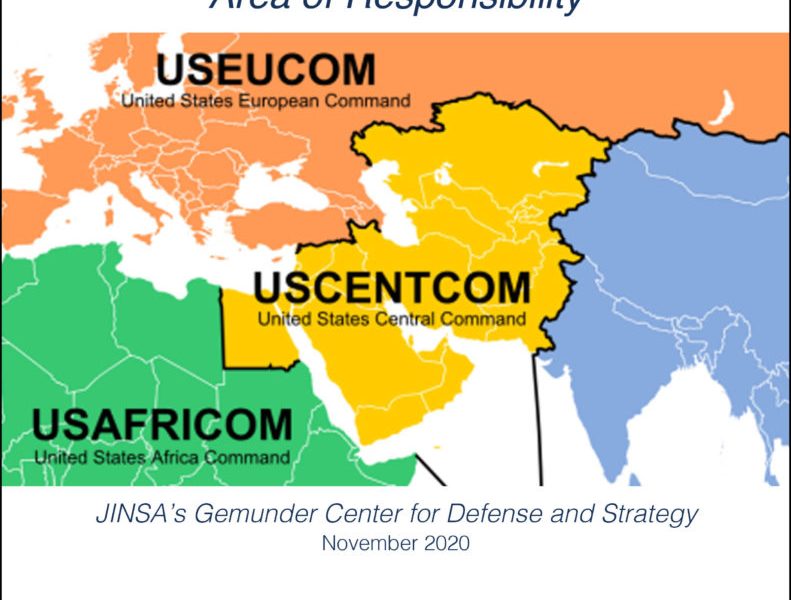Insights from JINSA’s Gaza Conflict 2021 Assessment were highlighted this week in a bipartisan letter to Deputy Secretary of Defense Kathleen Hicks signed by Reps. Don Bacon (R-NE), Elaine Luria (D-VA), and Scott Franklin (R-FL). The letter highlights how the May 2021 Gaza conflict provides an important case study on how the Israeli Defense Force (IDF) utilized machine learning and artificial intelligence to quickly synthesize massive amounts of data into actionable intelligence that was accurate and timely, in what has been described as the “first artificial intelligence (AI) war.” The congressmen urge DSD Hicks to incorporate lessons learned from the IDF as the U.S. Department of Defense advances the complementary efforts of Joint All Domain Command and Control (JADC2) and the pursuit of AI technology here in the United States.
As the Department advances the complementary efforts of Joint All Domain Command and Control (JADC2) and the pursuit of artificial intelligence (AI) technology, we urge you to incorporate recent lessons learned from the Israeli Defense Force (IDF).
Described as the “first artificial intelligence (AI) war,” the IDF response to the May 2021 Gaza Conflict provides an important case study of how the IDF utilized machine learning and AI to quickly synthesize massive amounts of data into actionable intelligence that was accurate and timely. As detailed in the recent report from the Jewish Institute for National Security of America (JINSA), Gaza Conflict 2021 Assessment: Observations and Lessons, the IDF has recent first-hand experience using AI and machine learning to integrate data from electronic sensors onboard Unmanned Aerial Vehicles (UAVs), F-35 aircraft and other sensor networks in a complex urban environment. This report was written by a task force comprised of a dozen retired U.S. generals, admirals, and military legal experts. Their analysis has yielded highly relevant observations about the challenges confronting Israel today and that the United States could soon face in the future.
We understand that the IDF’s incorporation of AI in the targeting process required both technological and infrastructure investments to combine massive amounts of data into a single, searchable, and accessible databank. These advances required organizational and cultural changes to Israel’s intelligence community that focused on breaking down stovepipes in favor of sharing information. Technological advances in intelligence collection and analysis, combined with institutional changes to exploit this data, ultimately enabled the IDF neutralize threats more precisely and in a much shorter timeframe than in their previous conflict with Hamas in 2014.
We request that you direct DoD components now working to integrate AI capabilities into our future systems to engage with their Israeli counterparts for lessons learned from the May 2021 Gaza conflict. We also request this topic be included on the agenda for the inaugural Israel – U.S. Operations Technology Working Group scheduled to meet in April. Finally, we request an after-action report summarizing progress made in identifying lessons learned from the IDF and any potential resource requirements.
Thank you for your exemplary service and commitment to our national security. We look forward to your response and to working with you to accelerate our incorporation of relevant insights from the IDF to improve U.S. defense capabilities.
| Don Bacon Member of Congress |
Elaine Luria Member of Congress |
C. Scott Franklin Member of Congress |

